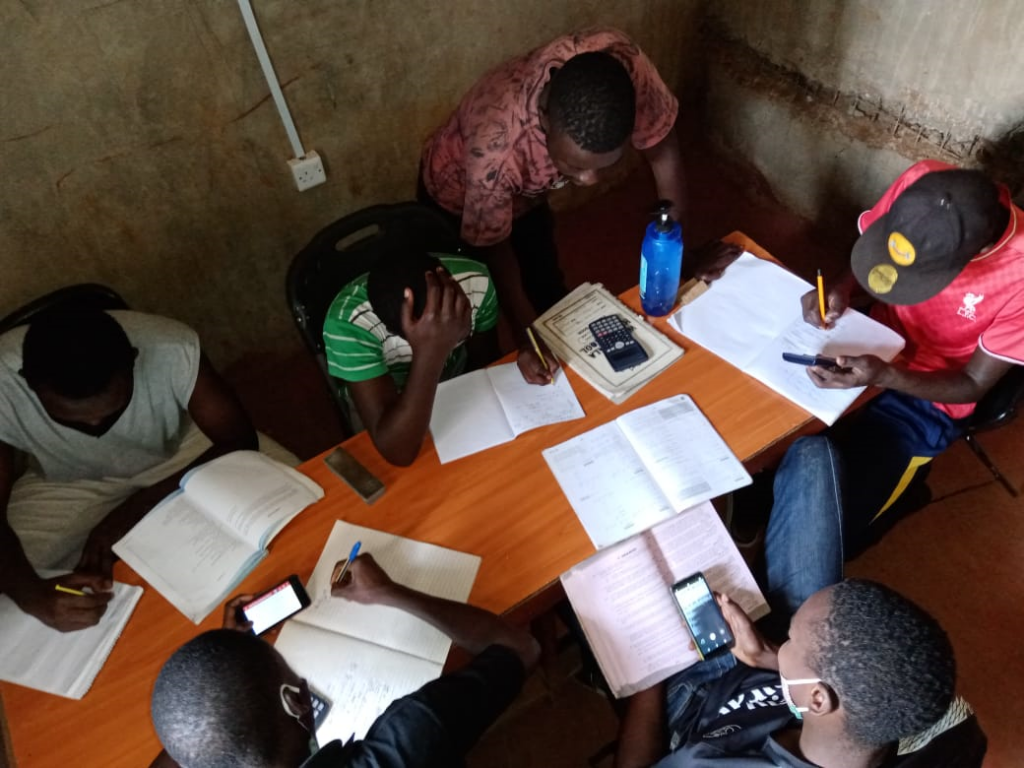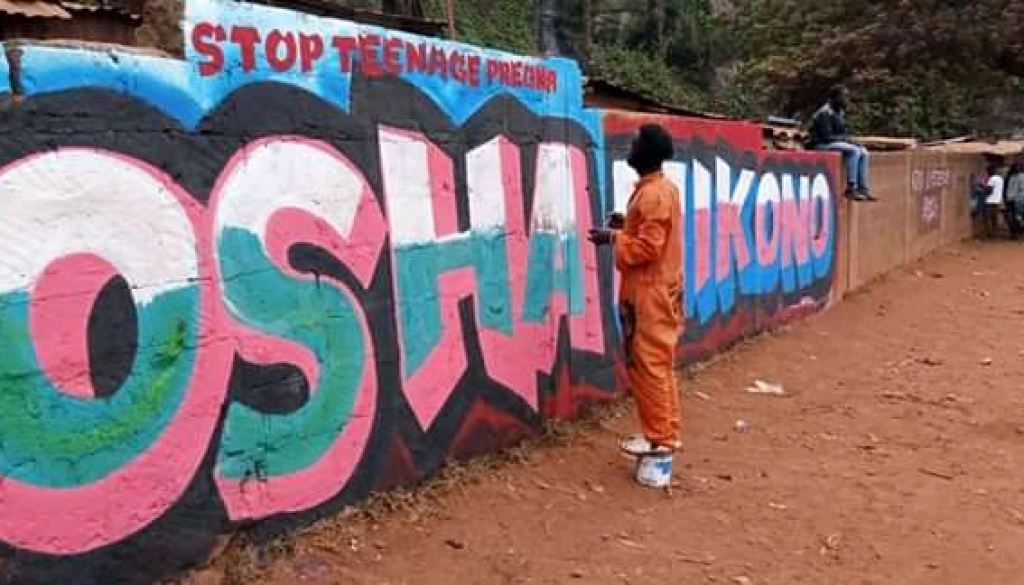Youth battle against COVID-19
By Jacob Omondi, Jackline Waithaka and Jane Wairutu
Globally, as of September 9, 2020 there have been 27,417,497 confirmed cases of Coronavirus reported to WHO. Efforts to slow the surge in cases and completely flatten the curve continue to be introduced at various scales however, the impacts of the pandemic have severely been experienced all around the globe.
Various reports note the COVID-19 outbreak, has greatly affected the labour market particularly the informal economic sector which harbors a large number of youth who now experience the negative impacts of the outbreak as a result of job losses and pay cuts. The pandemic has greatly devastated the youth, especially in informal settlements such as Mathare, Nairobi. Financial instability caused by contract termination and the evening curfew which affects a retailer’s booming business hours is among the main factors causing hardships for most youth who operate their businesses.
Residents in settlements such as Mathare, who often live from hand to mouth, are used to operating their business in the late-night hours. But they are now required to be home by 21.00 thereby reducing the hours where they would capitalize profits and businesses is at its peak. These businesses include the transport industry where the majority of the drivers and conductors are youths especially men, bar attendees who sell illicit brew (chang’aa) which is the backbone of Mathare’s economy. These jobs created employment for a lot of youths who could otherwise be rendered jobless and has resulted in a higher crime rate.
After the closure of schools as a measure to control COVID-19 there has been increased theft, more cases of teenage pregnancies, greater drug use, and more gang-related activity among youths. The rising trend among such groups has been attributed to the high unemployment rate amongst the youth both students and the ‘hustlers’ increasing social violence such as gender-based violence.
The story of Amos
Amos, a 22-year-old, talented artist and fashion designer from Mathare 4a, sought to sell coffee after the termination of his contract in a fashion firm he worked for. He expressed concern in his new business as it is yet to successfully pick up. A sense of uncertainty lingers as he thinks of his business’s future outcomes due to the low daily’s earning he can carve out. This is due to the low demand for coffee following the introduction of curfew, which has slowed down normal business operations during the booming business hours.
Unemployment has added to the increased rate of insecurity within Mathare. Amos has witnessed several scenes that bring about his fright for the dark. To him, this nightmare began when his and hundreds of other worker’s contracts were promptly terminated. He now has to risk finding customers within the now dangerous streets to earn a living.
The story of Stafford
Stafford Otieno a 28-year-old youth from Mathare said, “Finding a job has been one of my biggest challenges during this difficult pandemic period. I have applied for so many jobs but I have not been successful. Also, most of the jobs require years of experience and I do not have the exposure. I have realized here in Kenya if you don’t have connections or a godfather you can’t find a job.”
The stories of Daniel, Brian and the second Daniel
Many learning institutions around the world remain closed in an attempt to contain the spread of the COVID-19 virus. In Kenya, the education ministry directed the closure of schools in mid-March, three months after the school calendar had commenced. Six months on, various efforts have been channeled towards adapting to a new normal, online learning, as the government-run Kenya Institute of Curriculum Development continues to provide school programmes via the radio, television, and online.
The suspension of school by the government has made some Mathare based university students like Brian Opondo, Daniel Shitanda and Daniel Ongulo among others take up tutoring both primary and secondary candidates. They now have 25 students, whom they tutor within Mathare at a small fee of 100 shillings (KSH) per week to carter for administrative costs e.g. photocopy of the academic past paper for revision. This they do voluntarily while making use of the learning space granted by Canada Mathare Education Trust.

Prompting creative responses
As much as the pandemic has affected many, it has also helped, to an extent, in improving lifestyles as thousands of youth have embraced creativity and innovation, some proceeding to make a living out of it. Sectors such as fine arts by drawing murals, music through composition of inspirational songs, poetry composition and performance, artistic performances are now using social media platforms such as Facebook, twitter and YouTube. Such artistic performances are majorly geared towards attracting audiences and provide entertainment sources as well as educational and awareness creation platforms for the masses.
COVID-19 has impacted negatively on majority of youth, but hasn’t hindered their active brains from being inventive and innovative thereby portraying the possibilities of coping within the pandemic period and going further to also be able to earn a living. And this is only possible if they are empowered to do so by creating co-curriculum training facilities such as vocational and community training institutes. With proper measures, we can manage the drastic economic instability the youth are experiencing currently.
